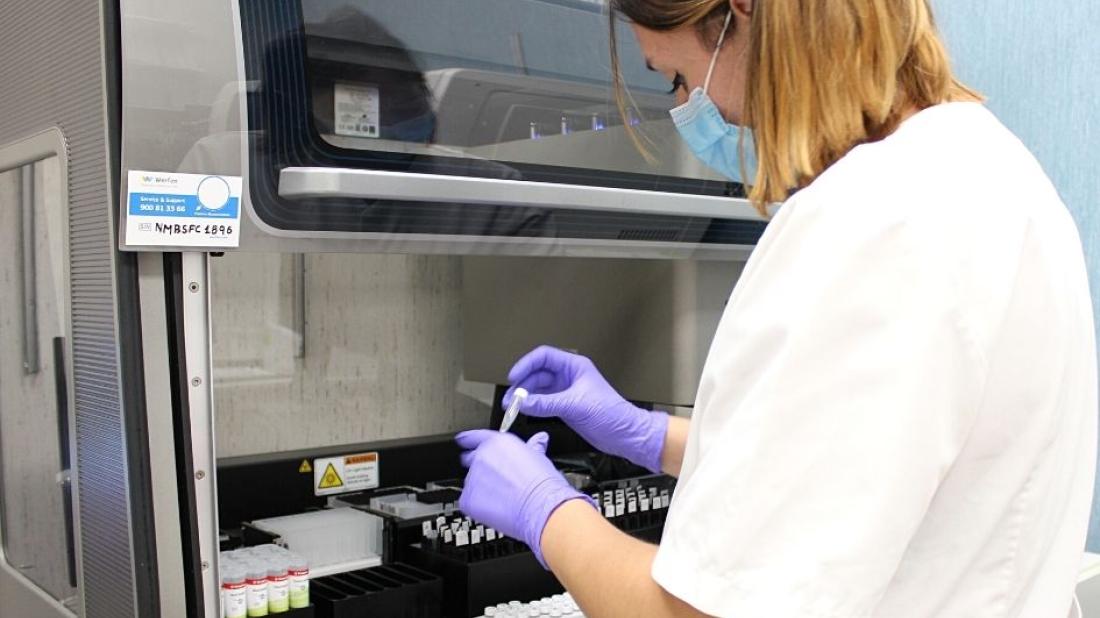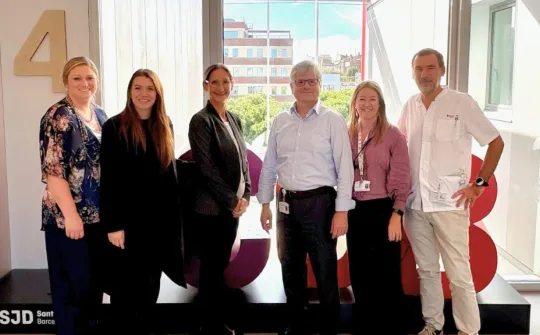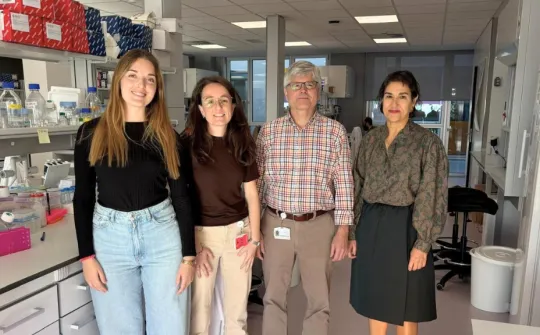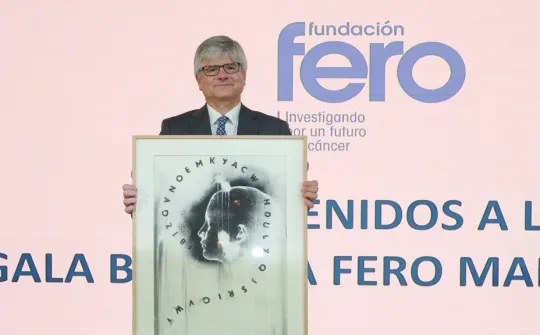
Researchers from SJD Barcelona Children's Hospital have discovered that interferon explains why some people fight off the infection without symptoms while others fall seriously ill
A study led by two investigators from SJD Barcelona Children's Hospital suggests that interferon, a protein that segregates immune system cells, may be a key element in the body's response to COVID that would explain why some people fall seriously ill while others fight off the infection asymptomatically. Children have higher levels of type 1 interferon than adults, and this fact could partly explain why COVID-19 has a lower incidence and milder profile in children.
When a cell is infected with a virus, it secretes interferons, a type of cytokines or proteins that are crucial in controlling the growth and activity of other immune system cells. These interferons activate the antiviral defences of the cells close to the infected cell to limit the spread of the virus.
The study's authors, Iolanda Jordan, Mònica Girona, and Laia Alsina, have compared the response of interferon and other cytokines in more than 80 patients, adults and children, who were infected with SARS-CoV-2 and presented varying levels of symptoms. Their aim: to identify markers that would enable us to predict, at diagnosis, which patients will go on to develop severe disease, with the goal of one day being able to personalize their treatment and avoid progression.
Severe cases of COVID in children
Although in most cases children are able to fight off COVID-19 with barely any symptoms or with mild symptoms, during the post-infectious period, 4–6 weeks after the infection, a very small percentage of them will present a severe multisystem inflammatory syndrome. The study's authors have observed that these children have a poor or delayed interferon response that causes an inefficient antiviral response in the initial stage, followed later by an overproduction of cytokines and hyper-inflammation. They believe that this poor response in the production of type 1 interferon may be due to genetic factors or other unidentified factors. In the post-infectious stage, the production of type 2 interferon predominates, rather than the type 1 interferon of the initial stage.
The researchers have also selected two genes and have demonstrated that low levels of expression of the CIITA gene and high levels of expression of SOCS1 correlate with the severest COVID cases.
These results, published with open access in the journal iScience, indicate that analyzing the pattern of expression of certain cytokines and the selected genes could in the future serve as biomarkers to identify the patients at most risk of developing serious COVID, which could open the door to new therapeutic options for this disease.



